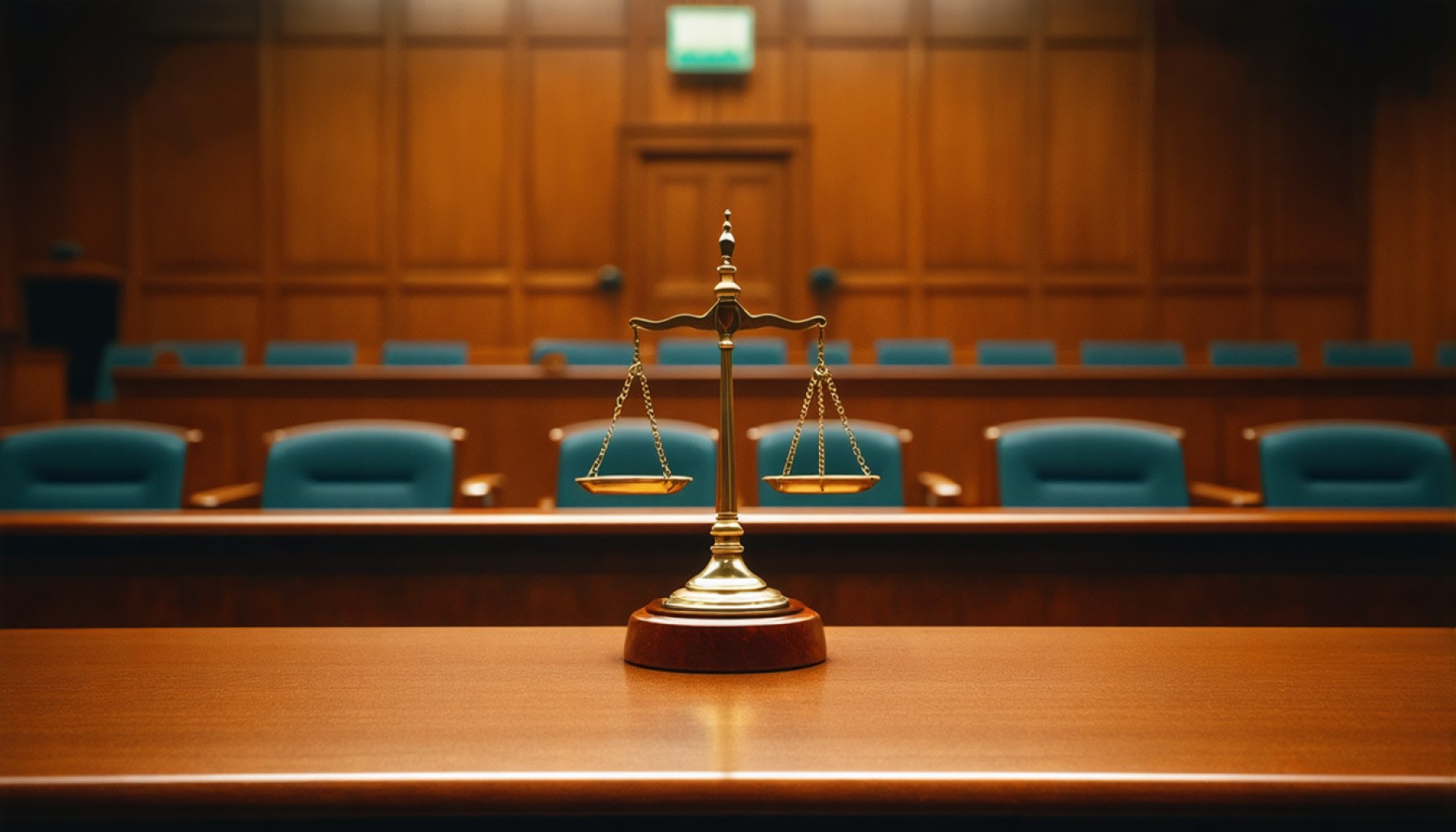- The trials of Rubiales and Errejón have captured national attention, highlighting societal issues of truth versus bias.
- Rubiales’ trial is marked by allegations of coercion and a public kiss, sparking intense public debate amid attempts to obscure facts.
- Errejón’s trial involves complex privacy issues and exposes personal vulnerabilities, questioning their relevance to the case.
- The outcomes of these trials could influence societal attitudes, with potential victories amplifying existing biases.
- Legal verdicts carry weight, but they don’t erase the reality of victimization or skepticism faced by accusers.
- These trials highlight the potential for societal transformation through collective advocacy despite systemic challenges.
- Ultimately, justice is pursued through the persistence of those affected, with their resilience serving as a beacon of hope.
A tense silence envelops the room as the nation’s attention pivots towards two unfolding trials—those of Rubiales and Errejón. Each case is a crucible where truth grapples with bias, and the outcomes carry repercussions reaching far beyond the courtroom.
The spotlight beams brightly on the Rubiales trial, marred by allegations of coercion and an infamous public kiss, which ignited a wave of public debate. Despite the facts laid bare, trust wavers as unqualified ‘experts’ attempt to muddy the waters. Words follow actions, but in this spectacle, perceptions could edge reality itself.
Meanwhile, Errejón’s proceedings tread delicate territory. The air crackles with accusations, defenses, and judicial maneuverings—the tug of war over a mobile phone’s privacy entangles with whispered histories of those involved. Darkness creeps in when the vulnerable lives of accusers are laid bare, disentangled from relevance, yet disturbingly on display.
Imagine a future where Rubiales or Errejón triumph in court. For some, such victories would herald justification, amplifying misogynistic echoes across headlines and social media blizzards. Yet, what reverberates is an indelible truth: legal verdicts don’t erase events nor negate the existence of victims. History reminds us how shifts only occur when collective voices rise above the din of denial.
For those harmed, winning or losing won’t change skepticism directed at them, exposing a society where the burden of accusation shadows them perpetually. Such trials spark transformation—for every overturned conviction catalyzes social progress. Stand firm, for justice is the tally of their voices, surmounting systemic silences. When they find victory, it’s a triumph for all, because their resilience fuels hope.
The Trials of Rubiales and Errejón: What You Need to Know and Why It Matters
How-To Steps & Life Hacks for Understanding Legal Proceedings
Understanding complex legal trials like those of Rubiales and Errejón requires breaking down the proceedings into more manageable parts:
1. Start with the Basics: Identify the core allegations or charges being contested.
2. Examine the Evidence: Consider the evidence presented by both sides, understanding that not all evidence carries equal weight.
3. Stay Informed: Follow reputable news sources and legal analyses to get varied perspectives.
4. Think Critically: Pay attention to potential biases in media portrayals and how they might shape public perception.
Real-World Use Cases
These trials spotlight important issues about media influence, privacy, and the legal treatment of sexual misconduct allegations. Organizations and individuals alike can learn about managing public relations crises, the importance of digital privacy, and societal responses to allegations.
Market Forecasts & Industry Trends
Legal Tech: The Rubiales and Errejón trials highlight the growing demand for legal technologies that ensure fair trials and unbiased reporting. Legal tech is expected to grow significantly, with advancements in digital privacy protections and AI for legal processes.
Reviews & Comparisons
Trial Outcomes Analysis: Comparisons can be drawn with past trials where public perception swayed heavily like the O.J. Simpson trial. Legal experts emphasize the ongoing need to separate court-passed judgments from public opinion.
Controversies & Limitations
– Media Bias: Accusations of media bias complicate the fairness of public trials, as highlighted in these cases.
– Privacy Concerns: Particularly in Errejón’s trial, questions about privacy rights versus transparency have emerged.
Features, Specs & Pricing
While not directly related to products, understanding what goes into crafting judicial proceedings can feel technical:
– Courtroom Technology: New systems for managing digital evidence and safeguarding privacy are increasingly utilized.
Security & Sustainability
Protecting personal information has become more critical, as evidenced in these trials. Courts have begun implementing stricter data security measures to protect the integrity of the judicial process and the privacy of individuals involved.
Insights & Predictions
Experts predict that similar high-profile trials will push for more robust legal reforms regarding media control and privacy rights.
Tutorials & Compatibility
Digital Privacy Tools: Resources like VPNs and encrypted communication apps can better protect individuals’ privacy in sensitive situations, avoiding situations like those in these trials.
Pros & Cons Overview
Pros:
– Raises awareness of legal and social issues.
– Potential legal reforms for privacy and media influence.
Cons:
– Potential to spread misinformation.
– Risk of victim re-traumatization.
Actionable Recommendations
For concerned readers and those in similar situations:
– Boost Legal Literacy: Engage with online resources, such as Coursera or edX, to better understand legal systems.
– Protect Your Privacy: Utilize personal security tools and be mindful of digital footprints.
For further reading on legal education, visit Coursera.
These high-profile trials remind us that while legal systems strive for justice, societal attitudes and public opinions hold substantial sway. The dialogue generated can serve to ignite meaningful changes when approached with awareness and respect for all involved.
